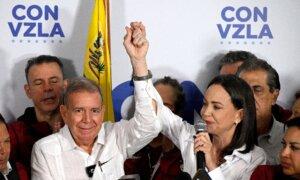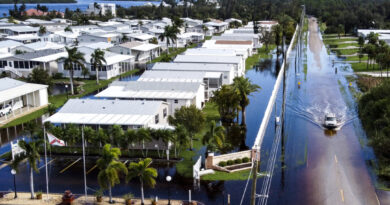The embattled head of state is under pressure, facing demands both domestically and internationally to release official data from the contested July 28 general election.
President Nicolas Maduro issued threats to Venezuela’s protesters and the international community on July 31, in response to five days of widespread civilian demonstrations that led to numerous police clashes, hundreds of arrests, and reports of 16 deaths.
During a stern televised address, Maduro referenced revolution and warned the United States.
“We want to follow the path that [Hugo] Chavez started… but if the American empire and the criminal fascists push us, I will not hesitate to call the people for a new revolution with different actors,” Maduro said. “If the empire persists in this criminal plan, we will defend our nation.”
Following the July 28 general election, residents took to the streets after Venezuela’s National Electoral Council (CNE) declared Maduro the winner of a third term in office. The embattled leader has presided over the country’s most severe economic crisis in recent history.
Videos showing protesters tearing down a statue of former President Hugo Chavez and clashing with security forces have prompted international officials to urge Maduro to release official data and tally sheets from the election. The source of the protests comes from opposition supporters who claim to have evidence that presidential candidate Edmundo Gonzalez actually won the election.
Maduro’s strong rhetoric was delivered amidst increasing pressure from international officials requesting that the CNE publish detailed vote counts as done in previous elections.
Colombian President Gustavo Petro urged Maduro’s administration to allow a transparent scrutiny with vote counting, minutes, and oversight by all political forces in Venezuela and international professionals.
Petro is not alone in trying to convince Maduro to reveal election data. Reports suggest that Brazilian President Luiz Inácio Lula da Silva and outgoing Mexican President Andrés Manuel López Obrador are also pressuring Maduro to disclose voting details.
U.S. President Joe Biden expressed appreciation to the Brazilian president for his leadership on Venezuela during an official phone call on July 30.
Both leaders emphasized the importance of full, transparent, and detailed voting data at the polling station level by Venezuelan electoral authorities. They believe the election outcome in Venezuela is a critical moment for democracy in the Western Hemisphere.
In an August 1 statement, the G7 foreign ministers of the United States, Canada, France, Germany, Italy, Japan, the United Kingdom, and the High Representative of the EU expressed solidarity with the Venezuelan people and called for the release of election data.
“Independent domestic and international observers have raised serious concerns about Venezuela’s presidential election results and the electoral process, particularly regarding irregularities and lack of transparency in the final vote count,” the joint statement said.
The Secretary General of the Organization of American States, Luis Almagro, questioned Venezuela’s election results and condemned the “crimes against humanity” occurring in the country.
“Given the status of the court’s investigation… it is time to present charges against those most responsible, including Maduro,” Almagro declared.
Facing pressure from all sides, Maduro instructed Venezuela’s supreme court to audit the election results on July 31.
Meanwhile, Venezuelan Defense Minister Vladimir Padrino reassured Maduro of the full support of the nation’s armed forces, pledging “absolute loyalty and unconditional support” amid ongoing post-election protests.





